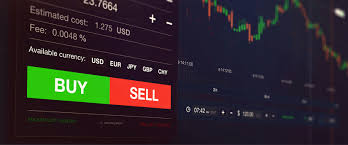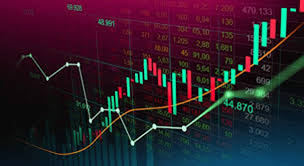
The Ultimate Guide to Online Forex Trading
In today’s digital age, online forex trading has become increasingly accessible to anyone with an internet connection. The foreign exchange market, also known as forex or FX, is the world’s largest and most liquid financial market, with trillions of dollars being traded daily. If you’re looking to dip your toes in this enticing market, you’re in the right place! This comprehensive guide will walk you through the essentials of forex trading. For more information and resources, you can visit forex trading online exbroker-turkiye.com, where you’ll find helpful tools and insights.
Understanding Forex Trading
Forex trading involves buying one currency while simultaneously selling another. Currencies are traded in pairs (for example, EUR/USD), and traders speculate on the value of one currency relative to another. The forex market operates 24 hours a day, five days a week, allowing traders to participate at virtually any time and from anywhere.
How Forex Trading Works
The mechanics of forex trading can be summed up in a few key components:
- Currency Pairs: Forex trading is conducted in pairs, such as GBP/USD. The first currency is the base currency, and the second is the quote currency.
- Liquidity: Forex is known for its liquidity, meaning there are always buyers and sellers available to make a trade.
- Leverage: Forex brokers often offer significant leverage, which allows traders to control larger positions with smaller amounts of capital.
Choosing a Forex Broker

Choosing the right forex broker is a crucial step in your trading journey. Here are some factors to consider when selecting a broker:
- Regulation: Ensure the broker is regulated by a reputable authority, which provides a layer of security for your investments.
- Trading Platform: Look for user-friendly trading platforms that offer the features you need, such as charting tools and technical indicators.
- Spreads and Fees: Compare the spreads and fees charged by different brokers to find one that suits your trading style.
Developing Your Forex Trading Strategy
An effective forex trading strategy is essential for successful trading. Here are some popular strategies to consider:
- Scalping: This strategy involves making quick trades to take advantage of small price movements throughout the day.
- Day Trading: Day traders open and close positions within the same trading day, avoiding the risk of overnight market volatility.
- Swing Trading: Swing traders hold positions for several days or weeks, aiming to profit from expected upward or downward market shifts.
- Position Trading: This long-term strategy involves holding positions for months or even years, allowing for a more strategic approach to market movements.
Risk Management in Forex Trading
Risk management is vital in forex trading to protect your capital. Here are some essential tips:
- Set Stop-Loss Orders: Use stop-loss orders to limit potential losses on your trades.
- Only Risk What You Can Afford to Lose: Ensure you’re only trading with funds you can afford to lose.
- Use Correct Position Sizing: Properly calculate the size of your trades based on your overall portfolio and risk tolerance.
Technical vs. Fundamental Analysis
Analyzing the forex market can be done through two main methods: technical analysis and fundamental analysis.

Technical Analysis
Technical analysis involves using charts and trends to predict future price movements based on historical data. Traders often use indicators such as moving averages, RSI (Relative Strength Index), and Bollinger Bands to make informed decisions.
Fundamental Analysis
Fundamental analysis focuses on economic indicators, news events, and other factors that might influence currency values. Traders need to stay updated on economic releases, interest rates, and geopolitical events to enhance their understanding of market movements.
The Importance of Emotional Discipline
Forex trading can be emotionally exhausting. Developing emotional discipline is crucial for success. Here are several tips to maintain your discipline:
- Stick to Your Plan: Always stick to your trading plan and avoid making impulsive decisions based on emotions.
- Limit Your Exposure: Avoid overleveraging your trades, which can lead to unnecessary stress and emotional decision-making.
- Take Breaks: Regularly take breaks to clear your mind and maintain a balanced perspective on your trading activities.
Final Thoughts
Online forex trading offers a world of opportunities for those willing to put in the time and effort to learn. With the right knowledge, strategy, and discipline, traders can navigate the complexities of the forex market and potentially achieve financial success.
Whether you are a novice or an experienced trader, always continue to educate yourself and stay informed about market developments. Good luck on your trading journey!

